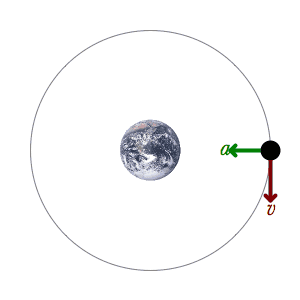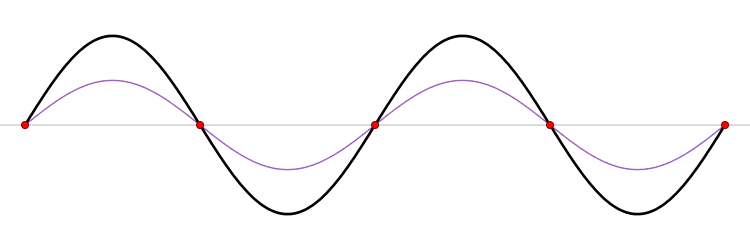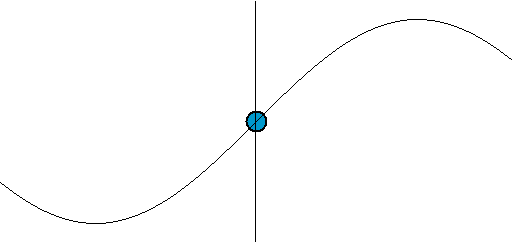The movement as the science and the philosophy // Analysis

Source of image of pixabay

Orbital movement of a satellite about the planet Earth, showing the vectors speed and acceleration, source of image of mastery of Wikimedia Commons, Author: Own wor
The movement of the bodies is a phenomenon about which we know many sew, since from our infancy for saying it about this form, we observe that the bodies move around us, at the same time we also move. From the investigation realized for Galilean and newton in the XVIIth century, has seen the importance of the study of the movement of the terrestrial and celestial bodies one governs for same laws, this is one of the reasons for which it is possible that sometimes we have to doubt it brings over, of which bodies they are that it is in movement and also which are at rest.

Stationary wave formed by the interference between a (blue) wave that advances towards the right hand and a (red) wave that advances towards the left side, source of image of mastery of Wikimedia Commons, Author: LucasVB
In mechanics newtoniana the movement of a particle in the three-dimensional space is represented by a function vectorial:

The set image the Ist m r = r (R), it is named a trajectory and is obtained integrating the previous distinguishing equation with the suitable conditions of outline, since the distinguishing equation can be complicated sometimes there for are looked integrals of movement that allow to find the trajectory more easily. For a system of n free particles that exercise actions at a distance instáneas the previous idea is generalized:

to speaking it about movement, it is very common to listen to expressions as: it exceeded the speed limit, it might go more rapid or from where it comes, it is different expressions allude to proper concepts of the Physics, since it is applied in the daily life, have inverse mathematical important aspects of analyzing.
The movement
From the antiquity the human being has studied the phenomena relate you to the movement, in this case they would be the kinematics it is the part of the Physics, which studies the movement of the bodies without worrying about the causes, which could provoke them, in such a way that it takes charge tackling the study of the proper magnitudes of the movement as the speed or the covered distance.

Aristóteles (en griego antiguo: Ἀριστοτέλης, Aristotélēs; Estagira, 384 a. C.-Calcis, 322 a. C, source of iamgen of mastery of Wikimedia Commons.
The movement of the planets can be described from the Earth as it made it Aristóteles, who was conceiving her as the center of the universe and took it as a system of reference, to describe the movement of the planets, of the sun, the moon and the stars. Also one can take as a system of reference the sun, which description has allowed to study in depth the knowledge, which we have about the behavior of the stars.

The waves can be represented by a harmonic simple movement, source of image of mastery of Wikimedia Commons, Author: User:Evil_saltine
Another way of thinking about a system of reference appears when being in a vehicle at rest, it perceives that this one steps back for effects of the movement, ahead of an automobile that one was finding nearby. In a general way, to describe the movement of a body it is suitable to establish certain system of reference, that facilitate his description, that is to say the change of position that experience a few bodies with regard to different, so-called system of reference, which is a coordinated system in three dimensions, which way is the position of an any point (P), in certain moment of time is determined by his coordinated Cartesian three (x, y, z), for the study of the movement, often he is enough to consider the bodies as if they were geometric points, considering that in certain opportunities without paying attention to as it moves itself the parts that compose it.

A lightning is the twinkle expressed by an electrical current, the trajectory of the electrons of the above mentioned current is a trajectory [aproximable for one] fractal, source of image of mastery of Wikimedia Commons, Author: Sebastien D'ARCO, animation by Koba-chan
In classic mechanics it is perfectly possible to define unívocamente the length Lc of the trajectory or way covered by a body. Also the distance can define without ambiguity d that exists between an initial point and the end of his trajectory; it is represented by the length of the straight line that joins the initial point with the final point, both magnitudes are related by the following inequality:

In special relativity nevertheless the concept of displacement of a mobile or covered length depends on the observer and although for every observer the covered length is major or just as the reached displacement cannot define of way objetiva a ' length covered ' for the mobile with that all the observers could coincide.
Is necessary to take it in account following, the trajectory is the line, which a mobile describes during his movement, which can be: rectilinear, curvilinear, circular, elliptical, parabolic and the distance covered by the object is the measurement of the trajectory, in such a way that the displacement of the mobile will be a guided segment, which joins two positions different from his trajectory. The distance and the measurement of the displacement coincide only when the movement produces to itself on line straight lines and in only felt, which allows us at level of the Physics, to understand better the rapidity and the speed, are used indistinctly in the daily life but, the speed one or it is used to represent so much the magnitude, as the direction with the one that moves herself the object and the rapidity alludes to only to the magnitude.
Bibliography
The world of the Physics 1 for Francisco Javier of the Tower Zermeño - 2003.
general Physics for Santiago Burbano de Ercilla, Carlos Grace Muñoz - 2003.
Physics and Global Dynamics: Global physics for José Tiberius - 2016.
